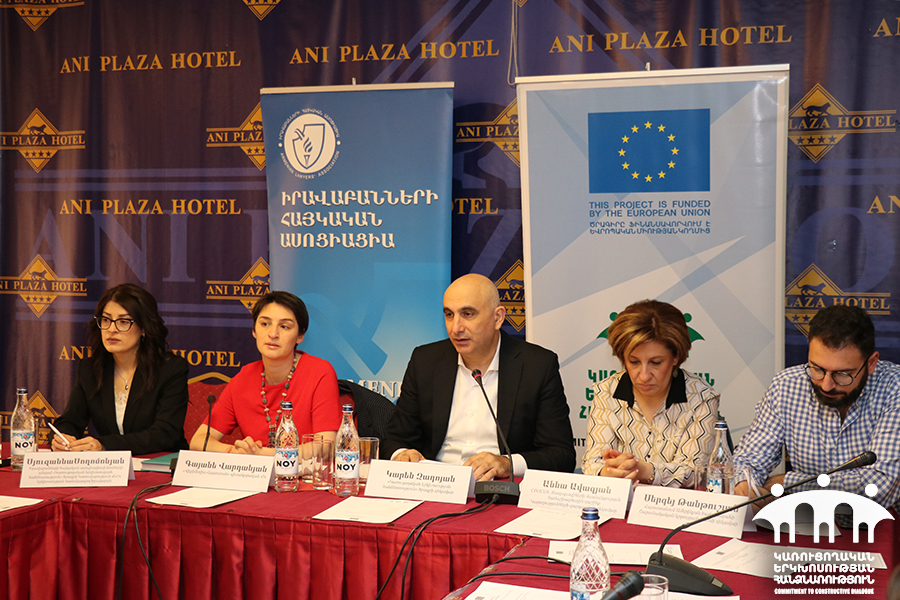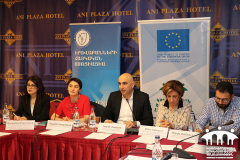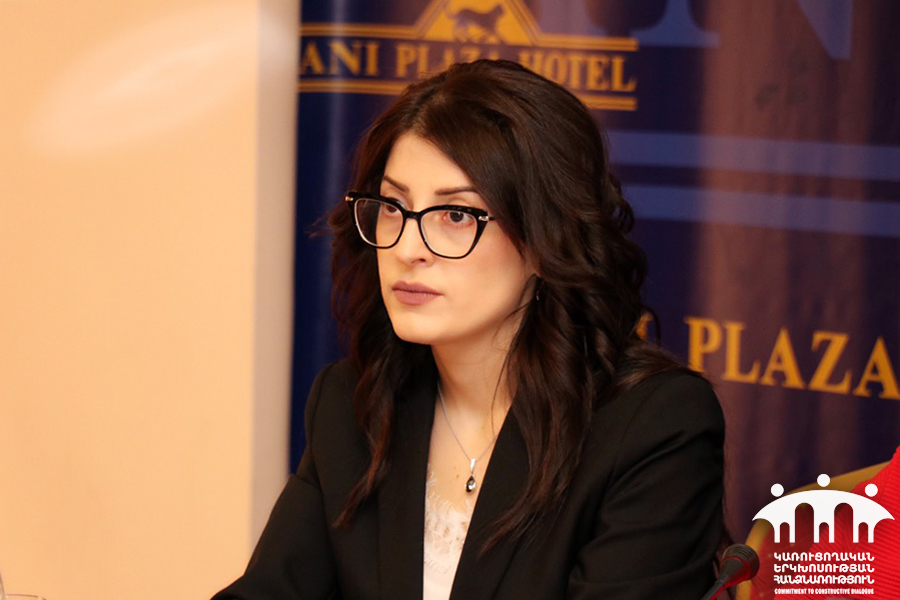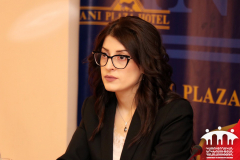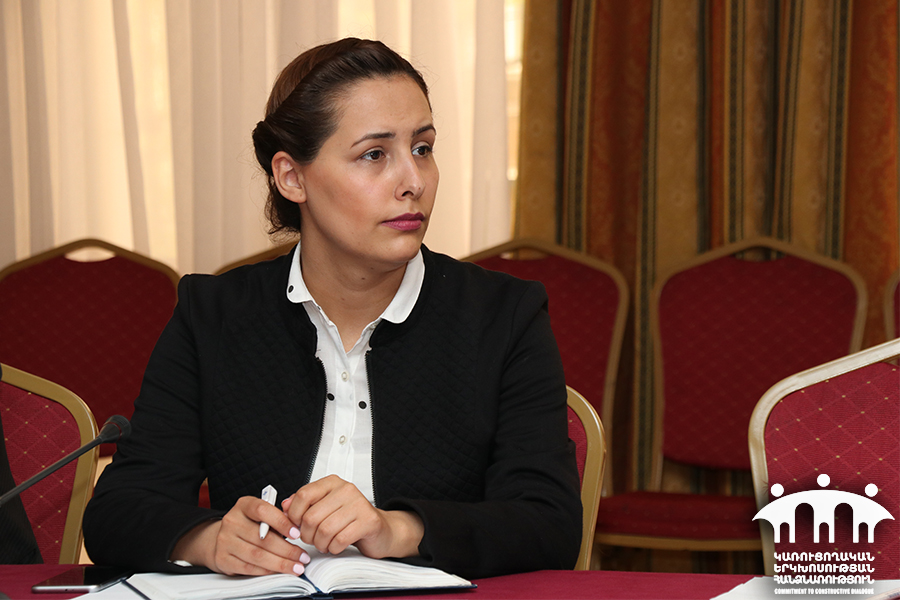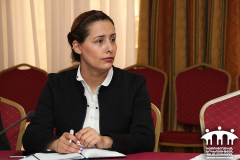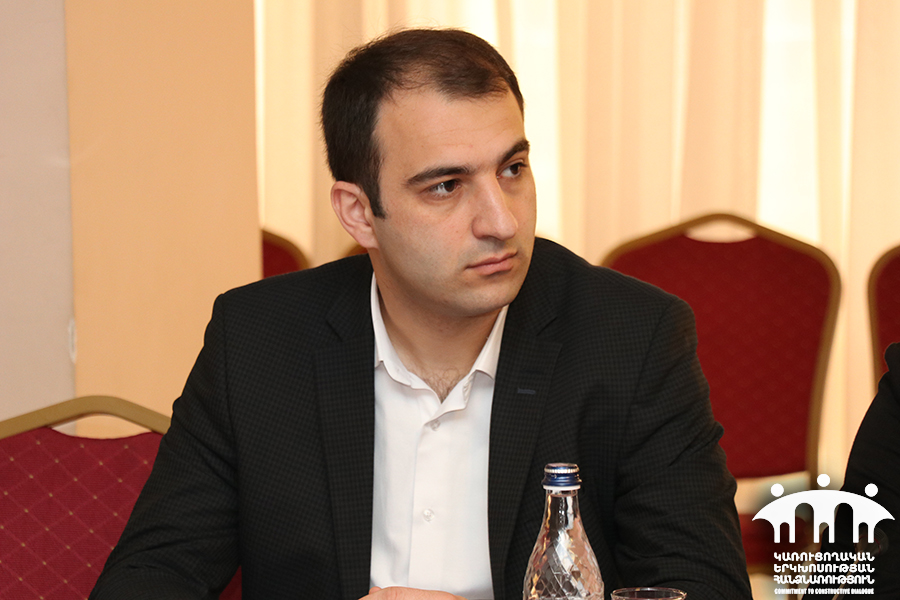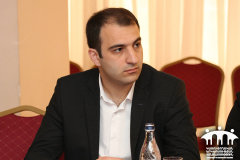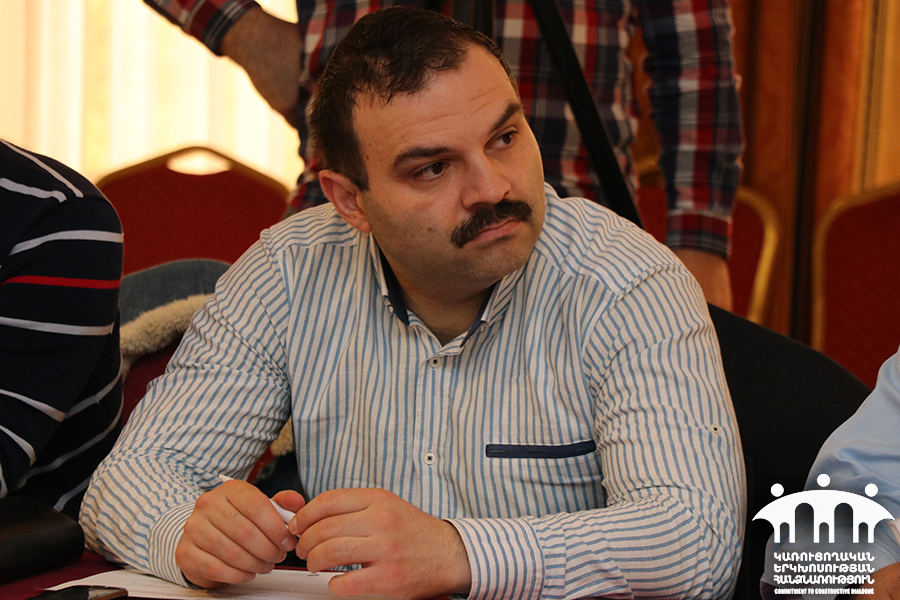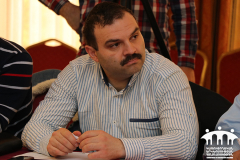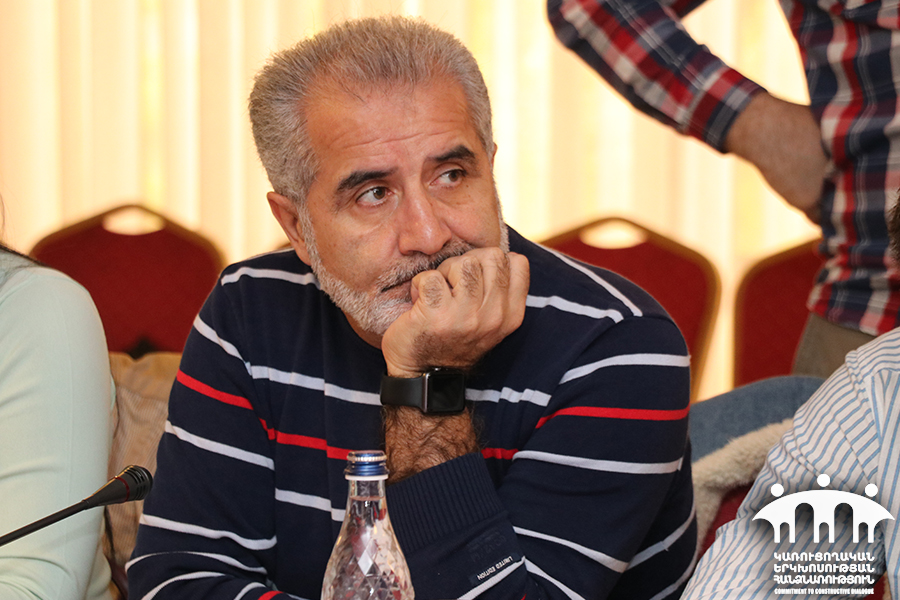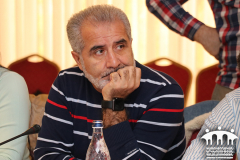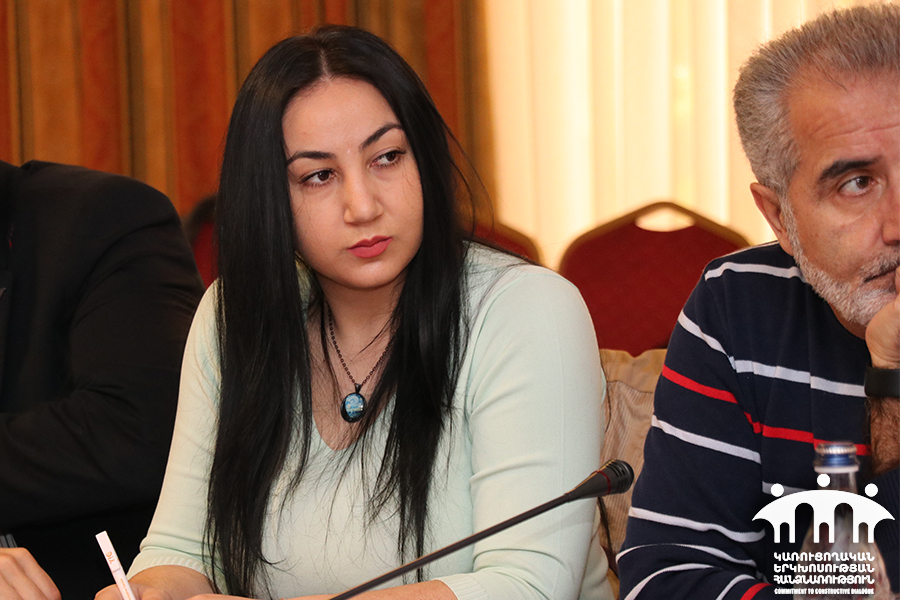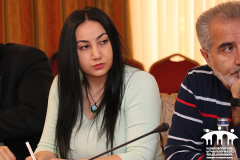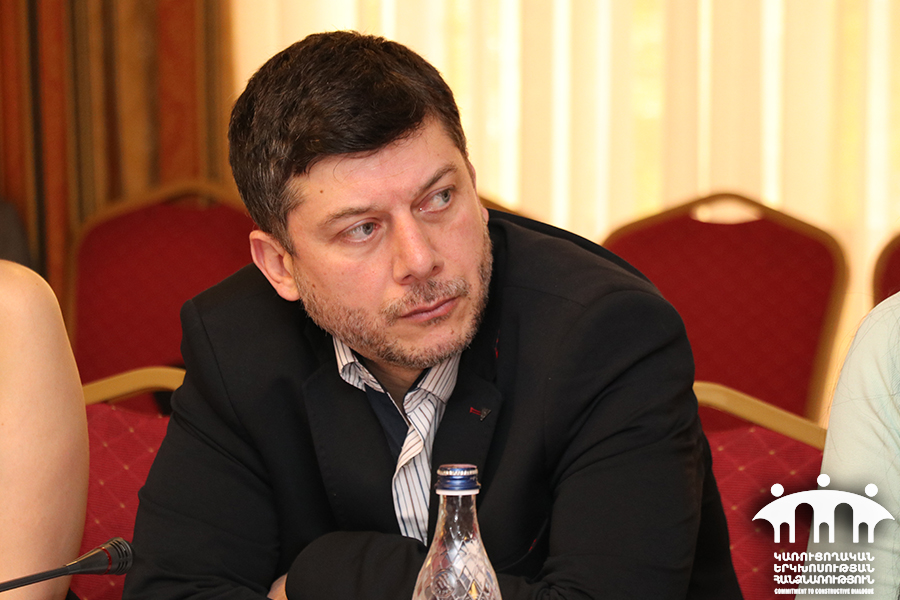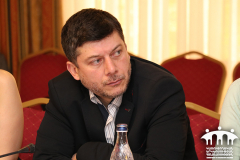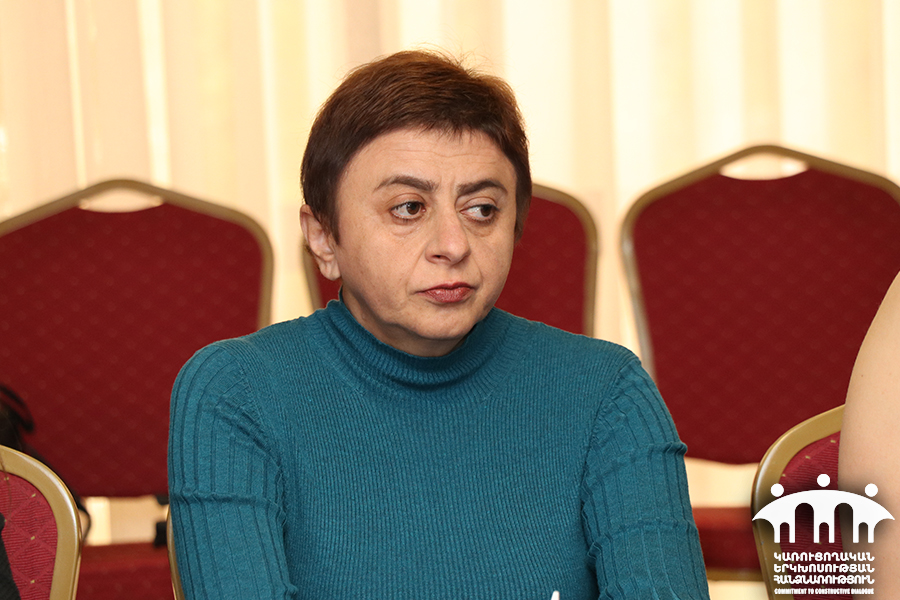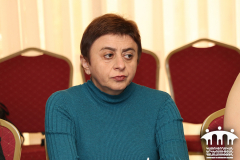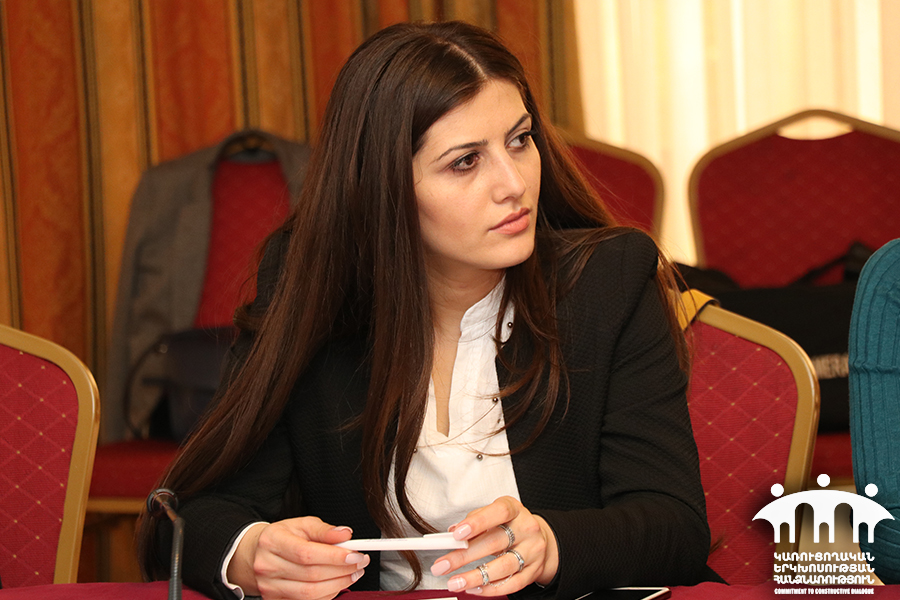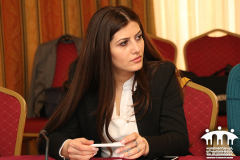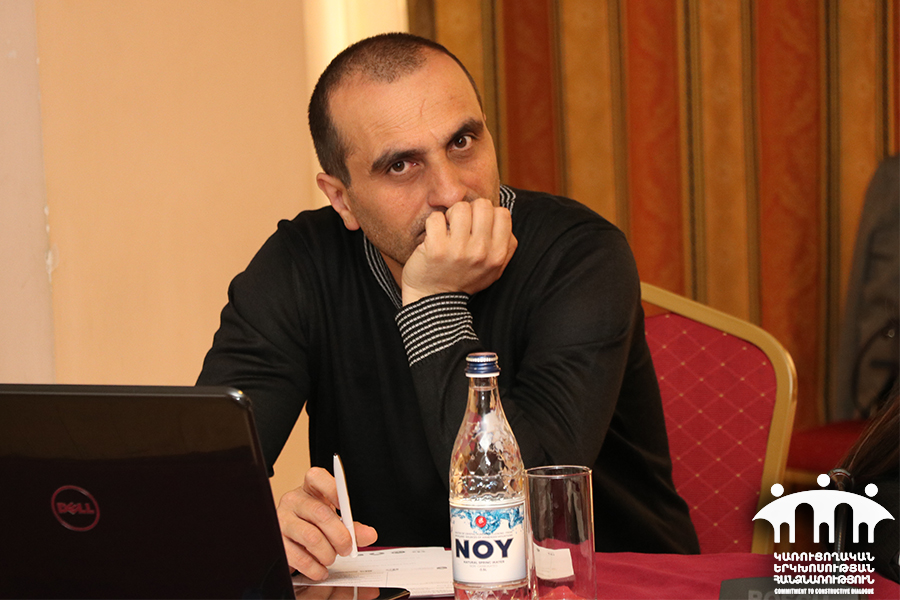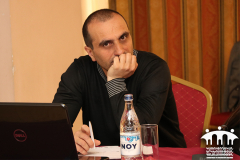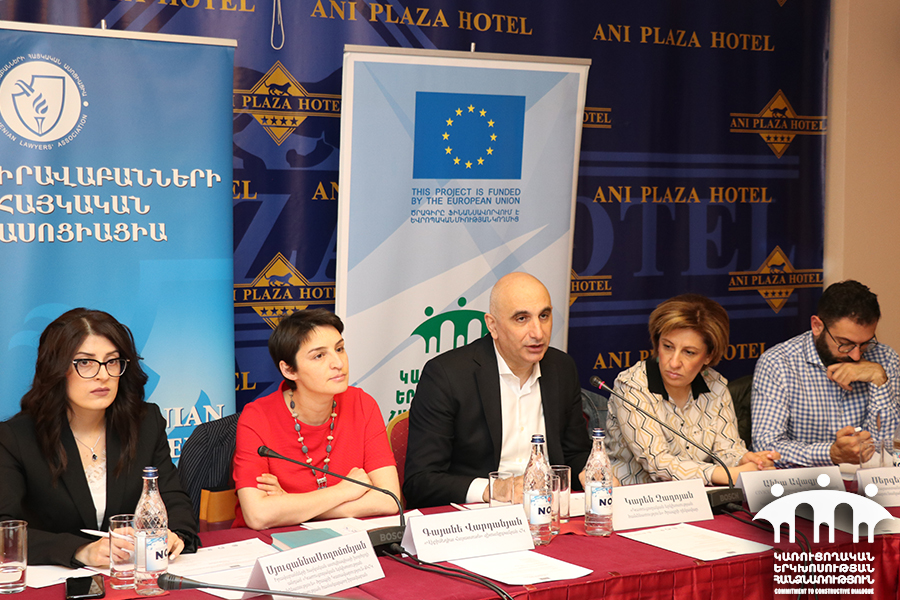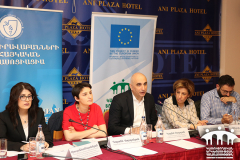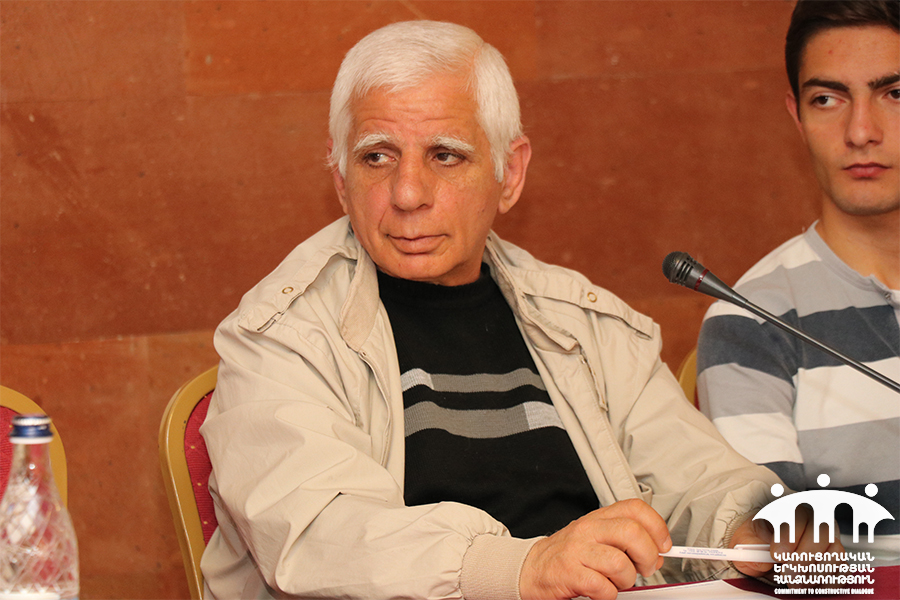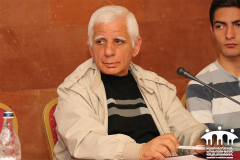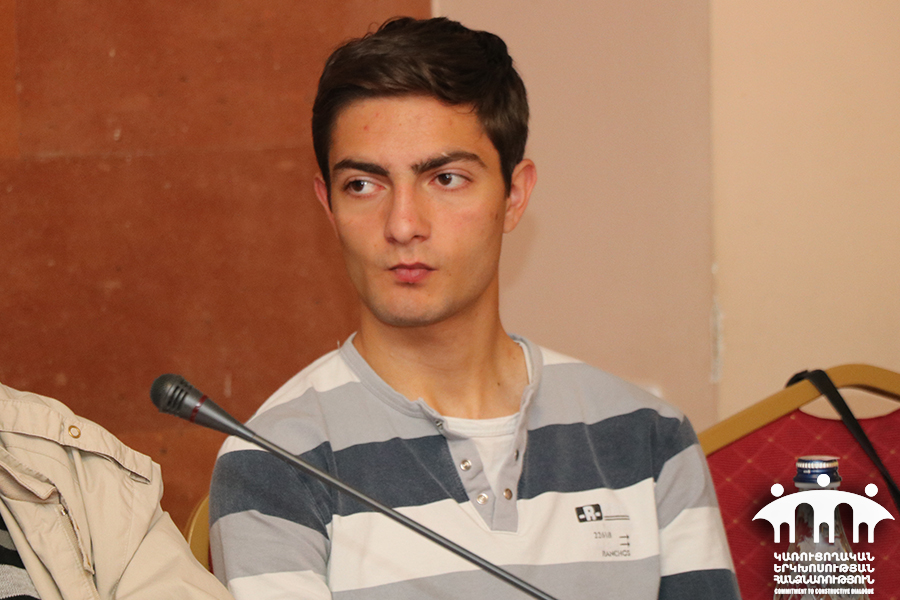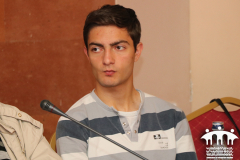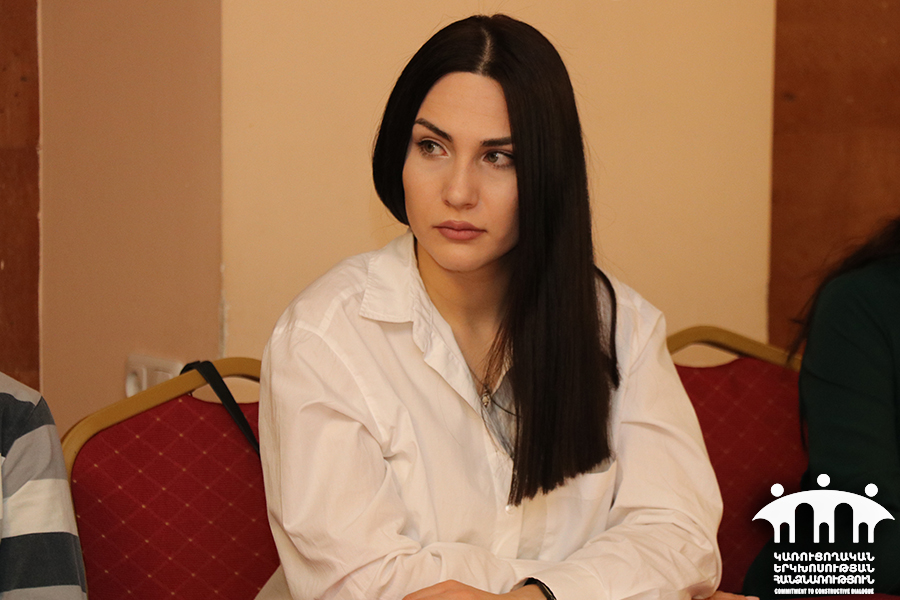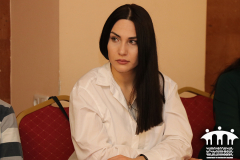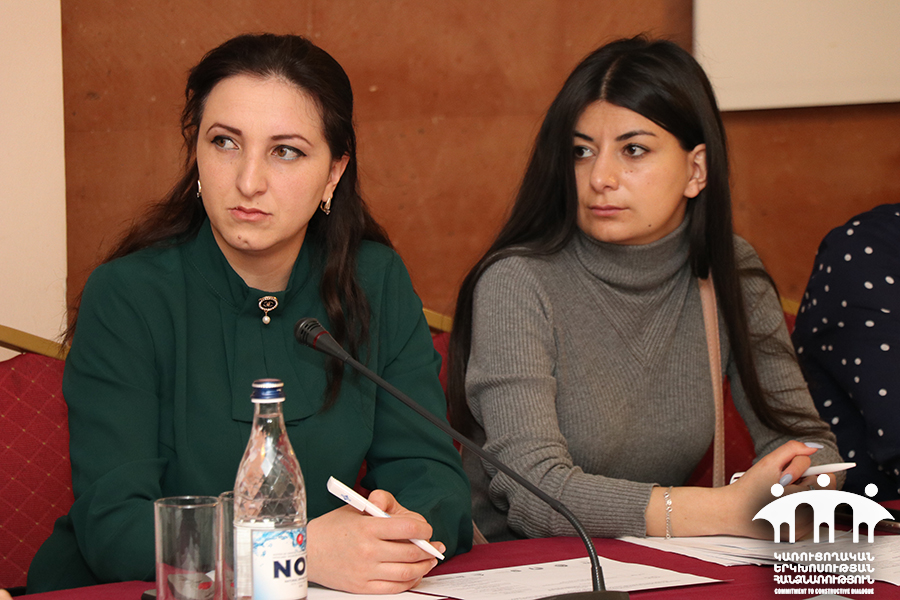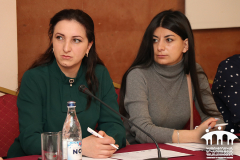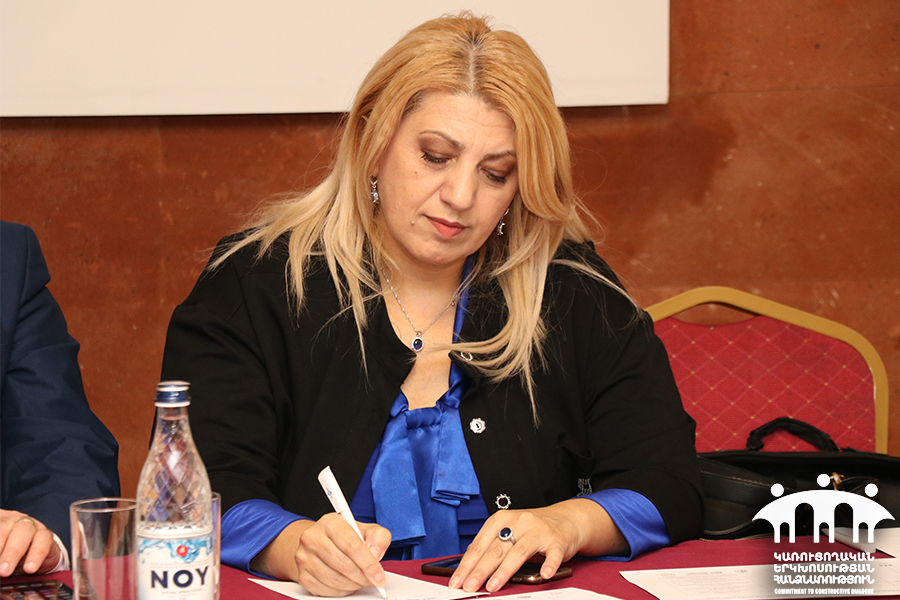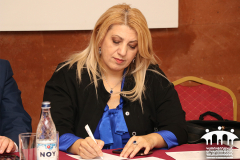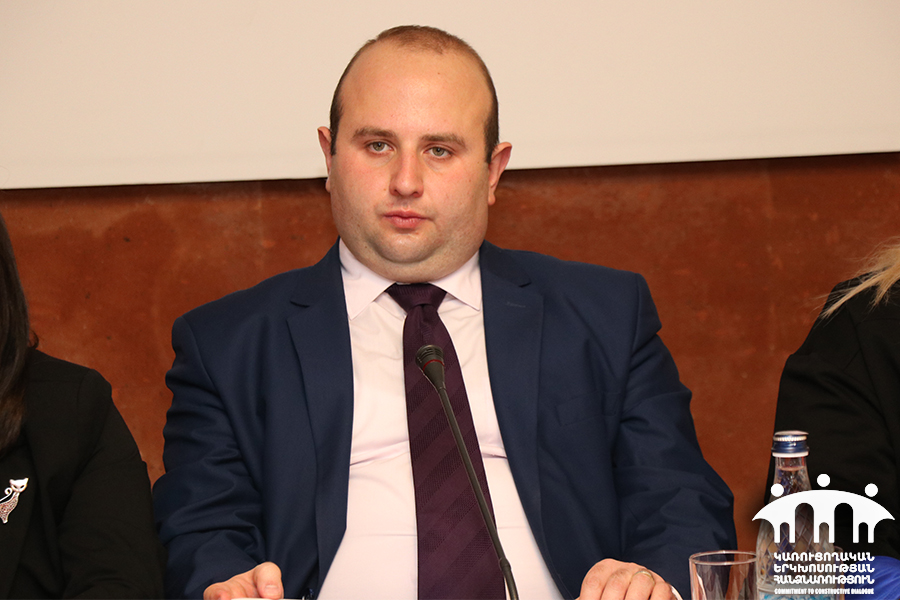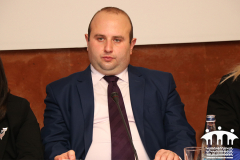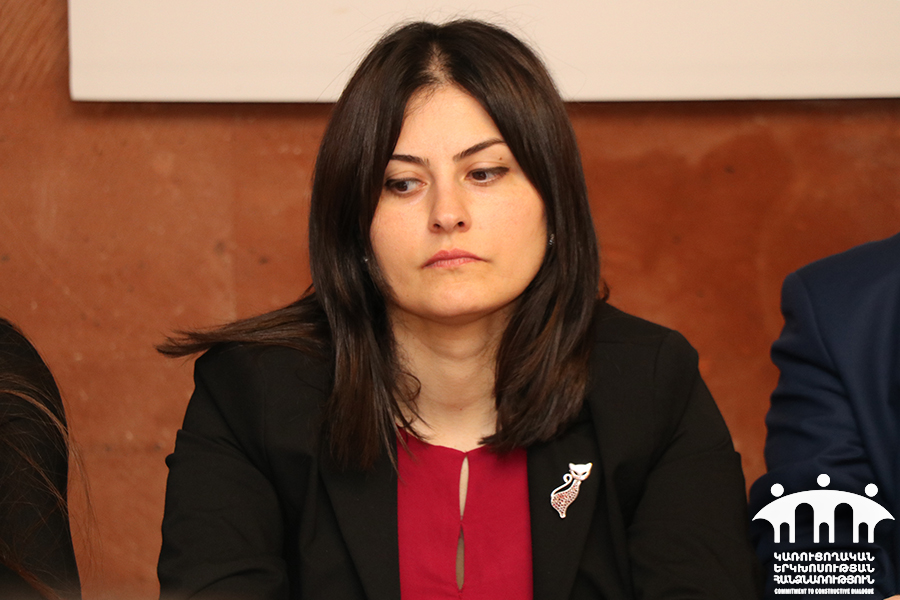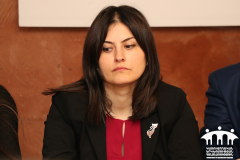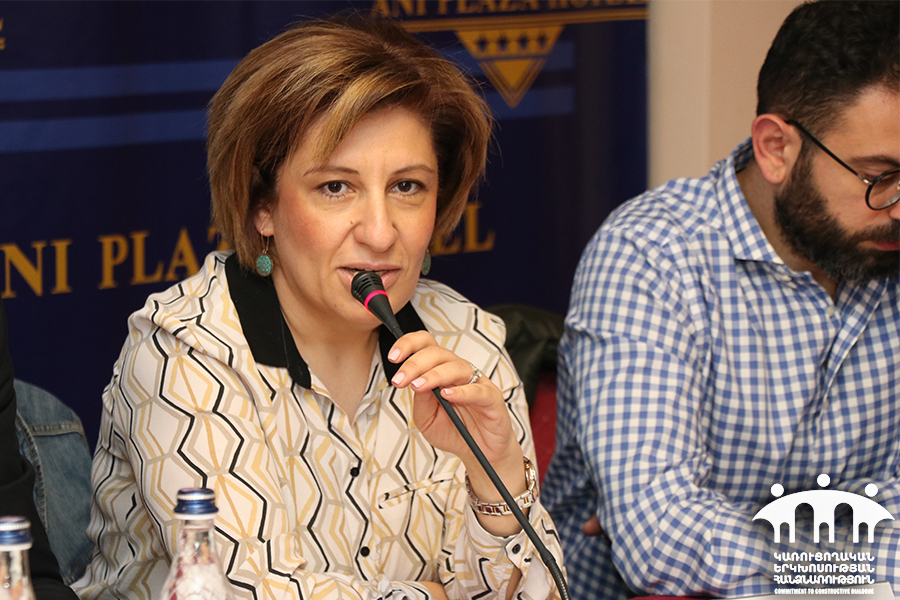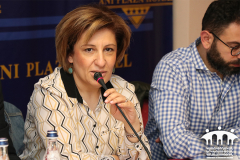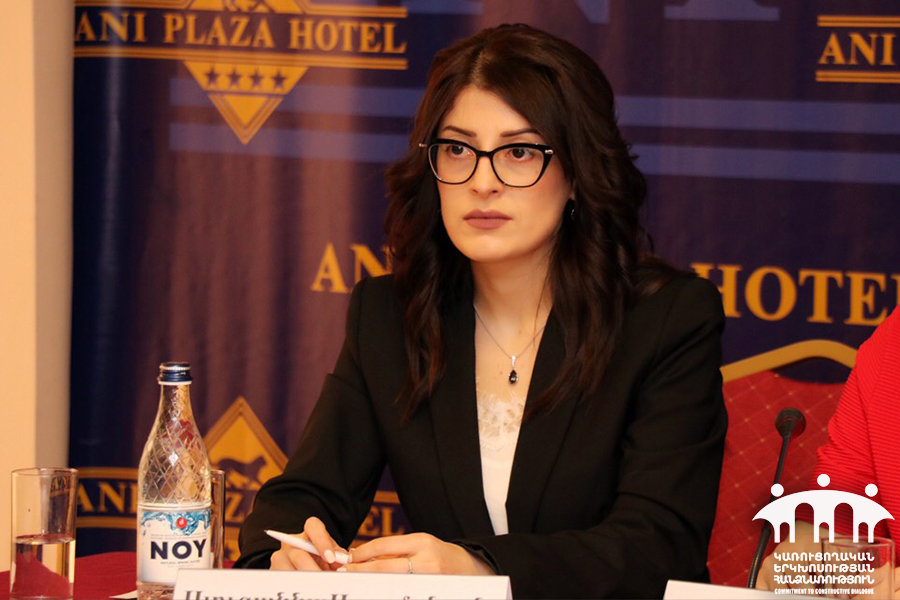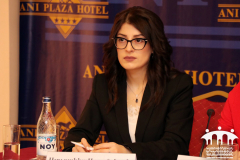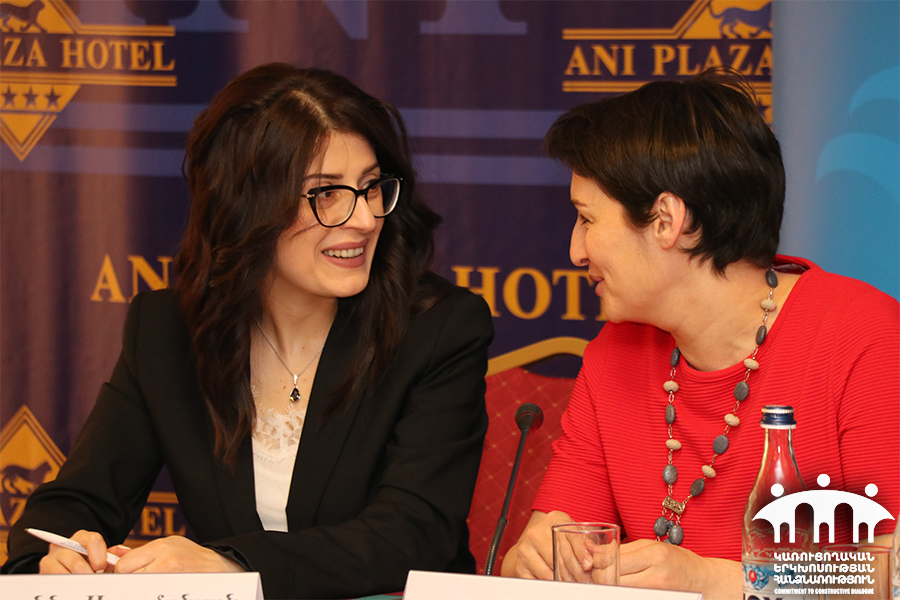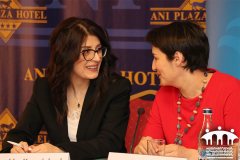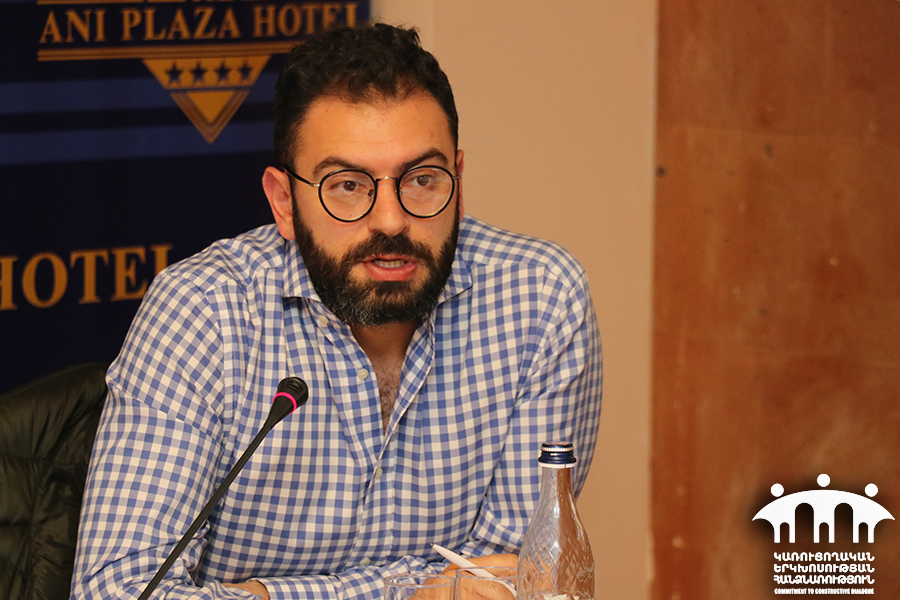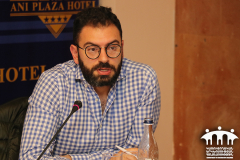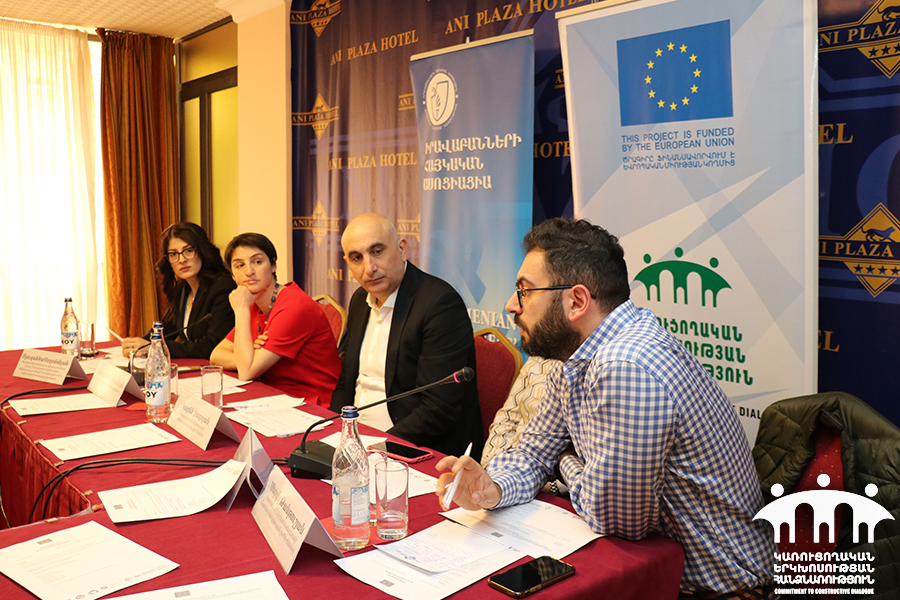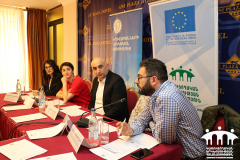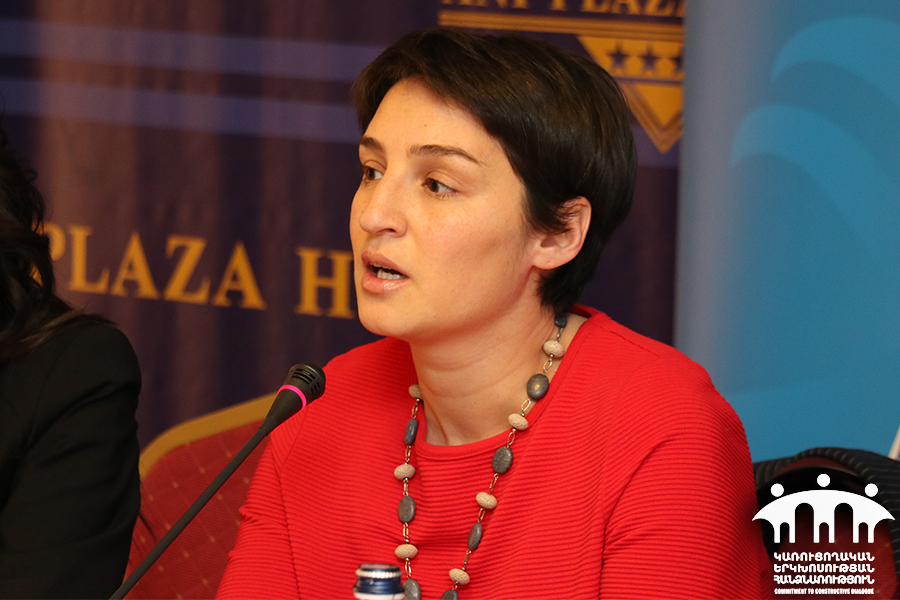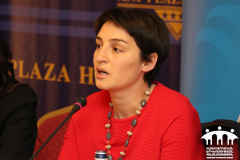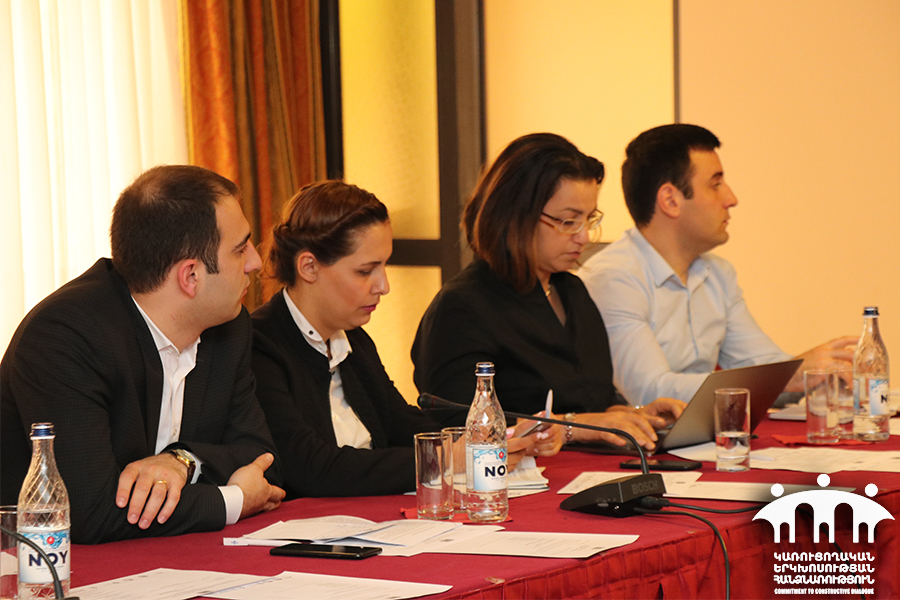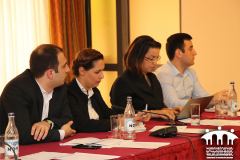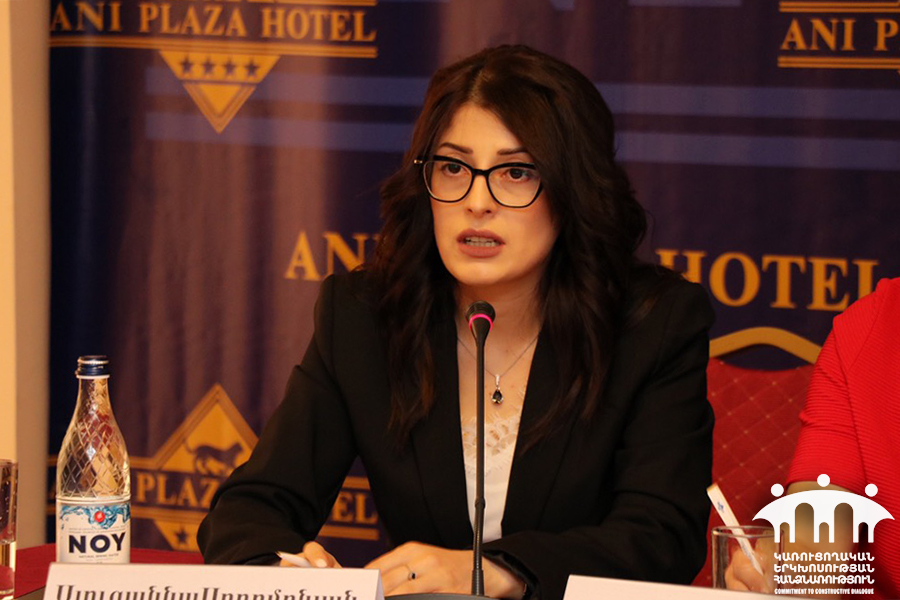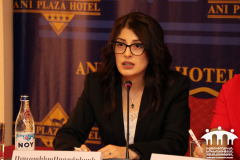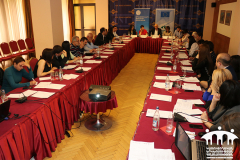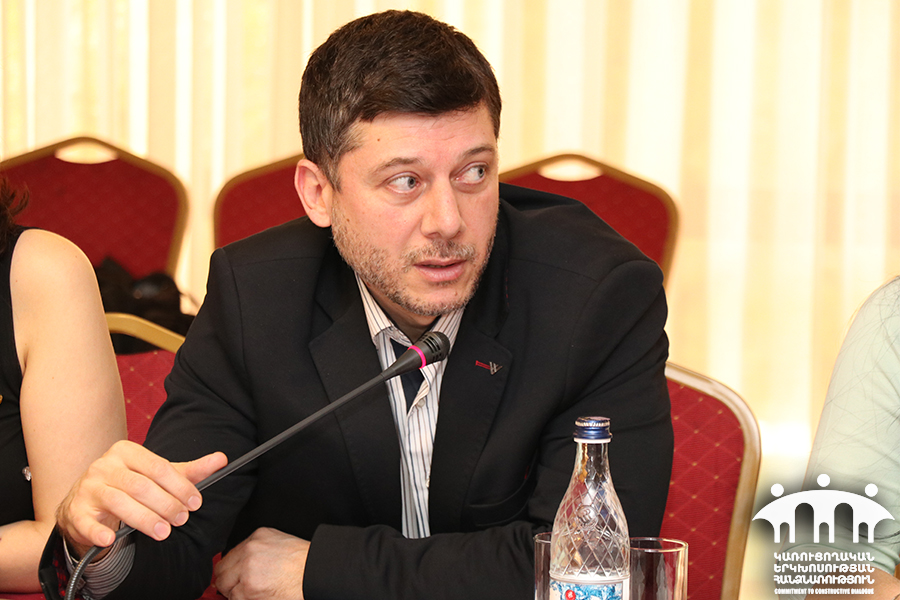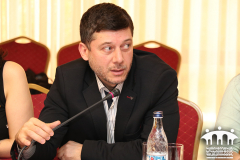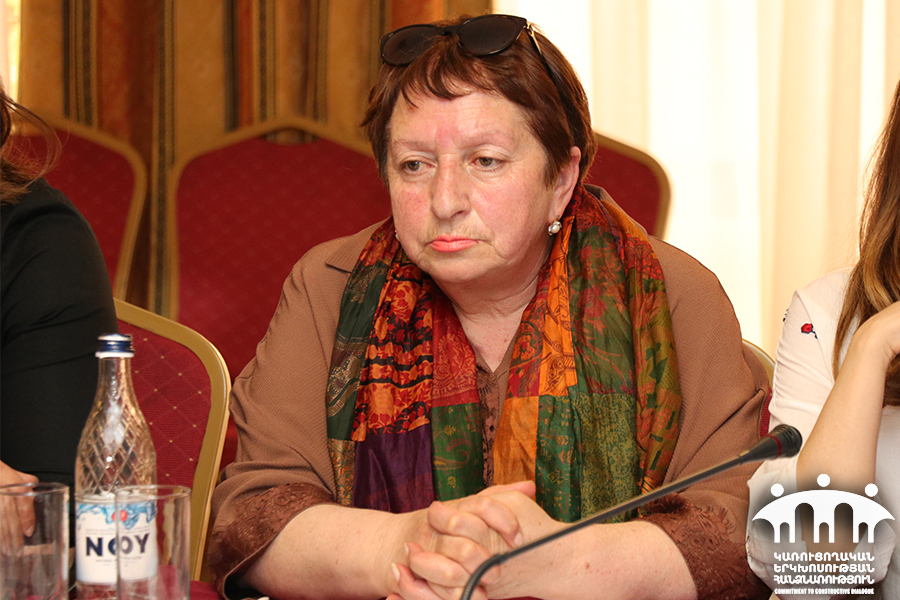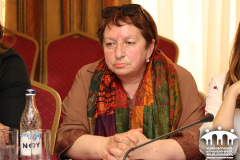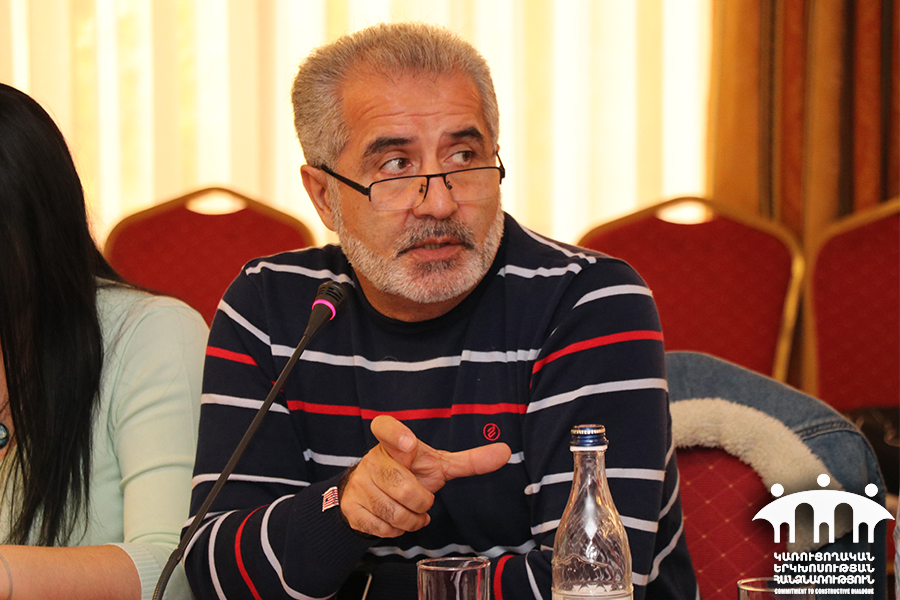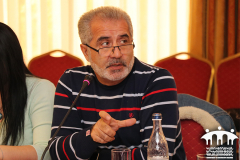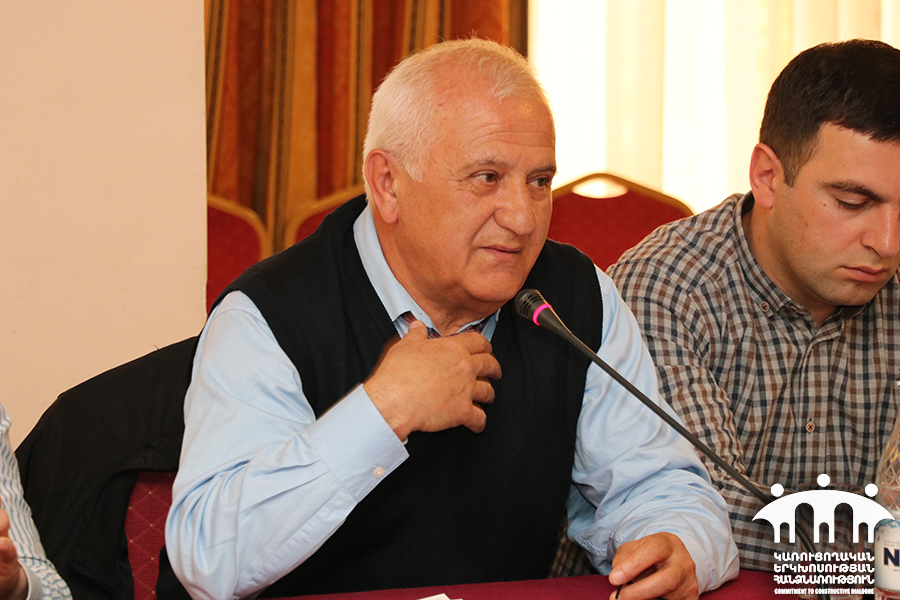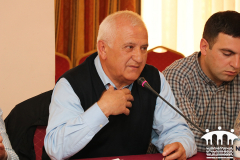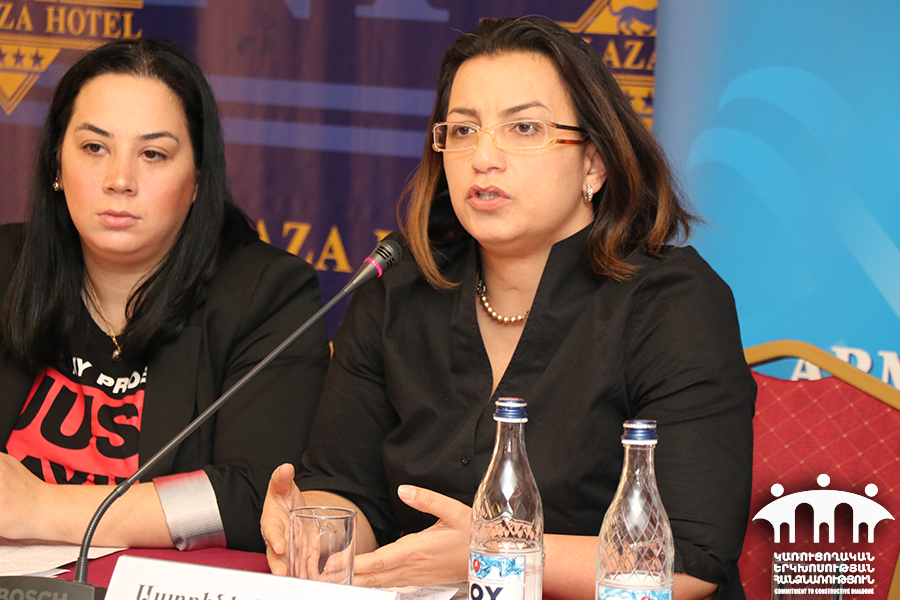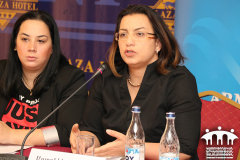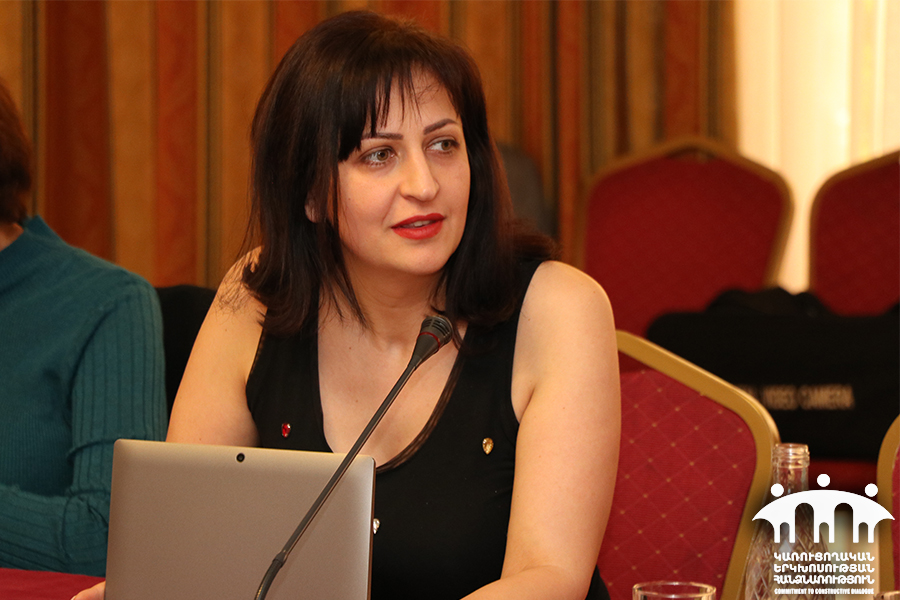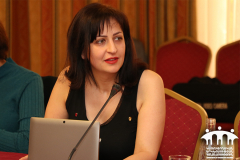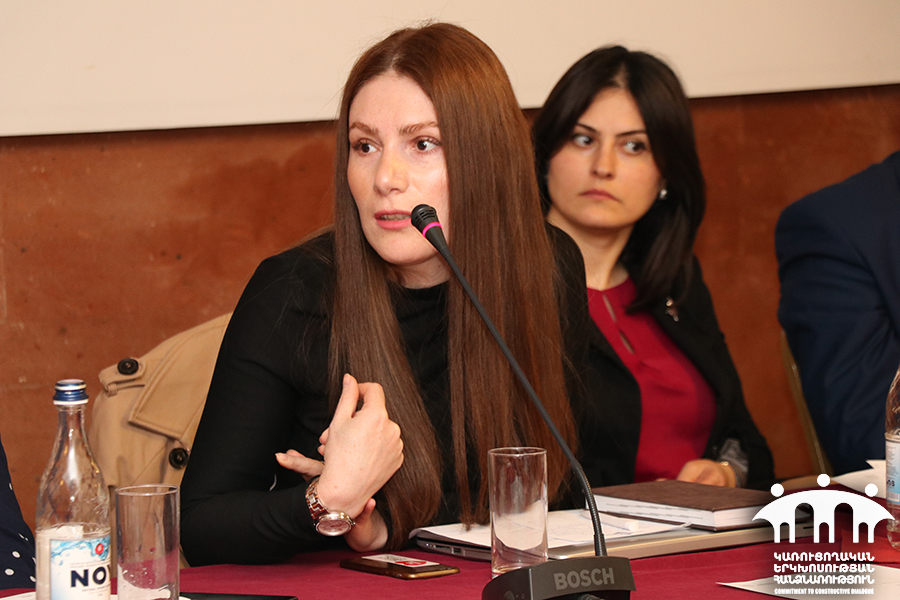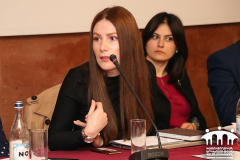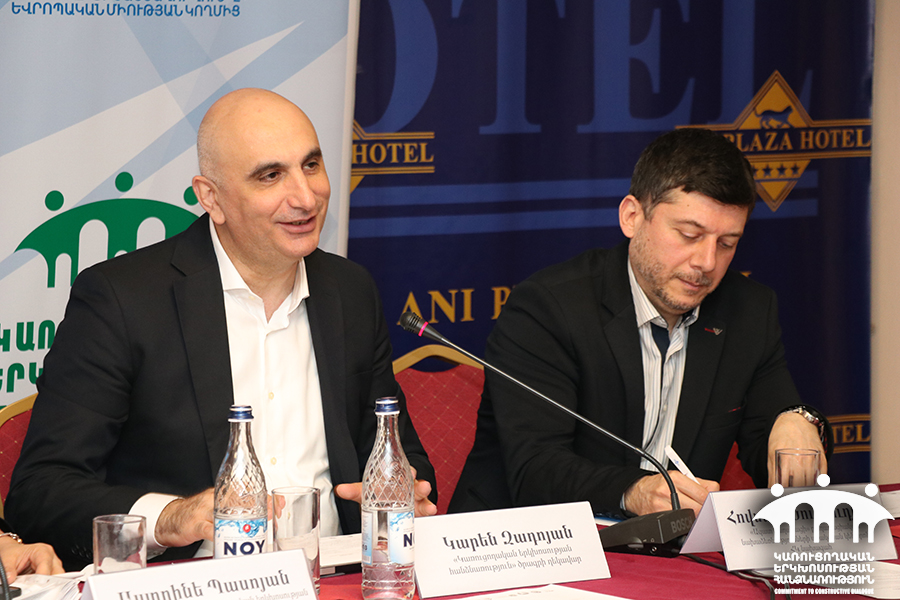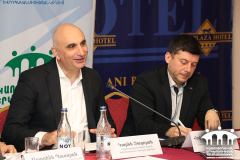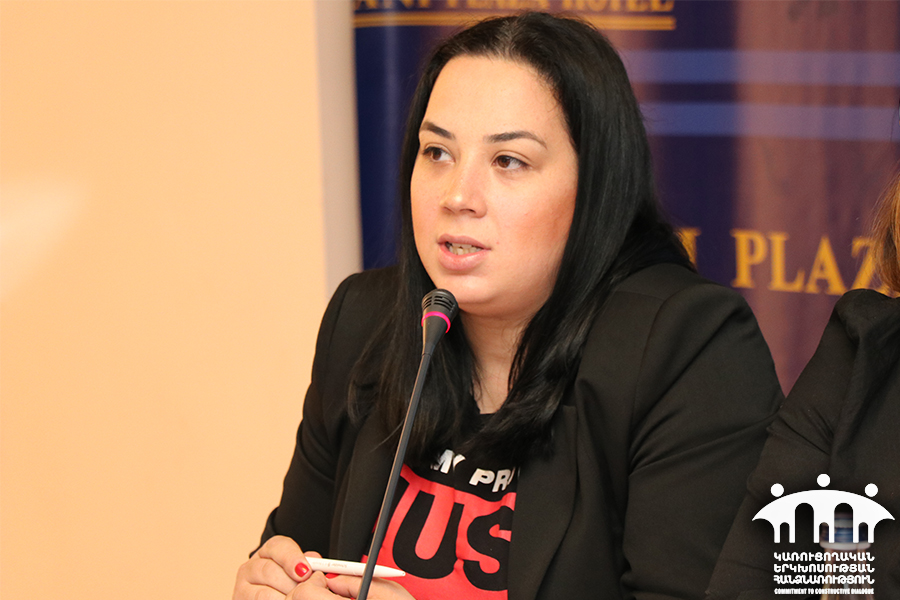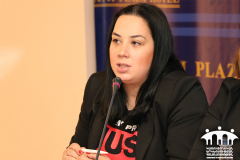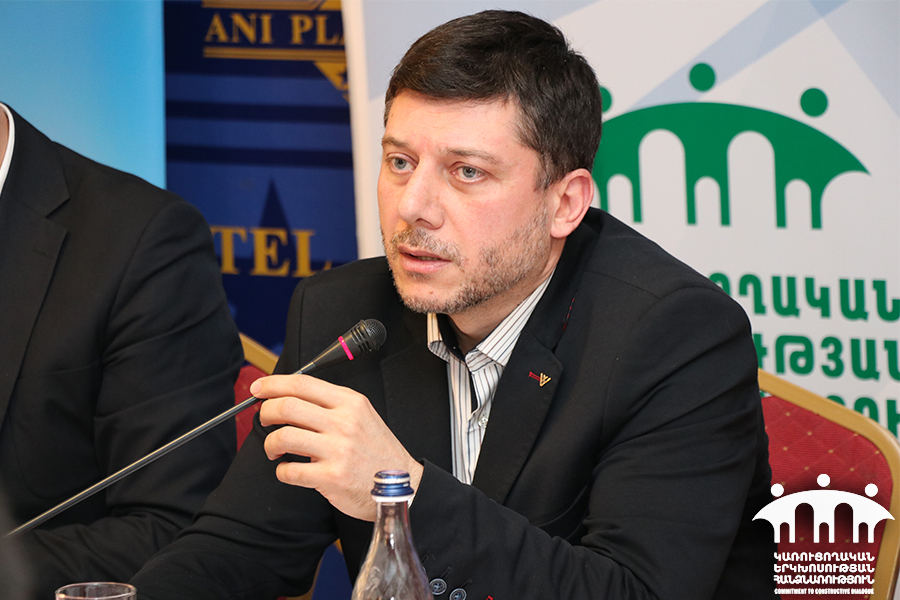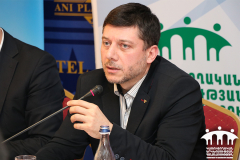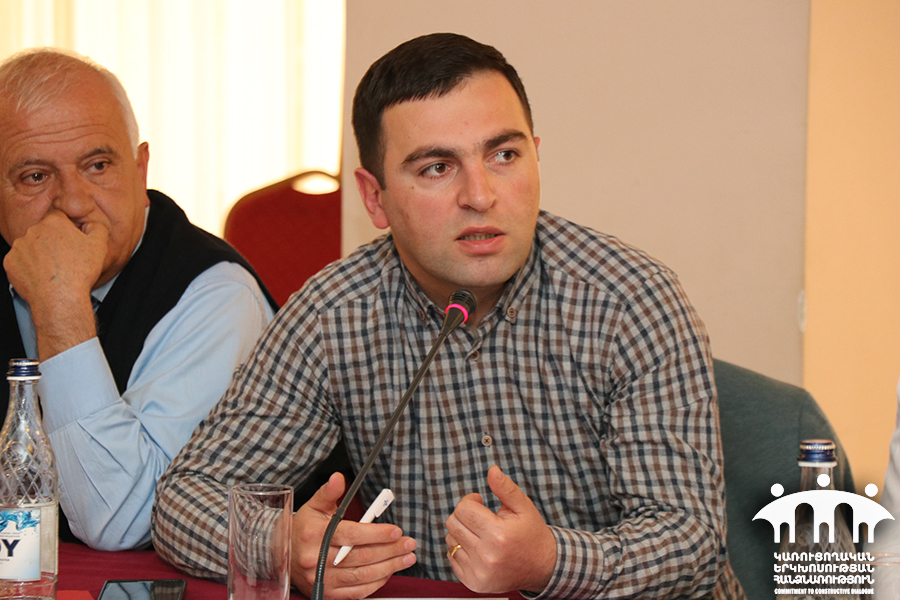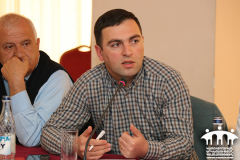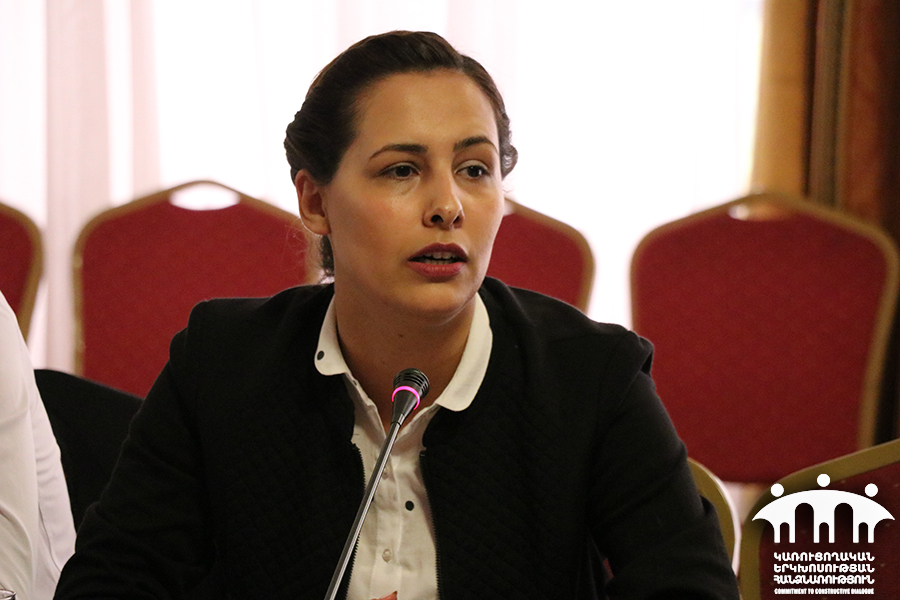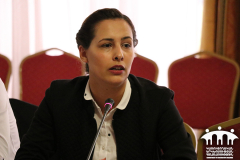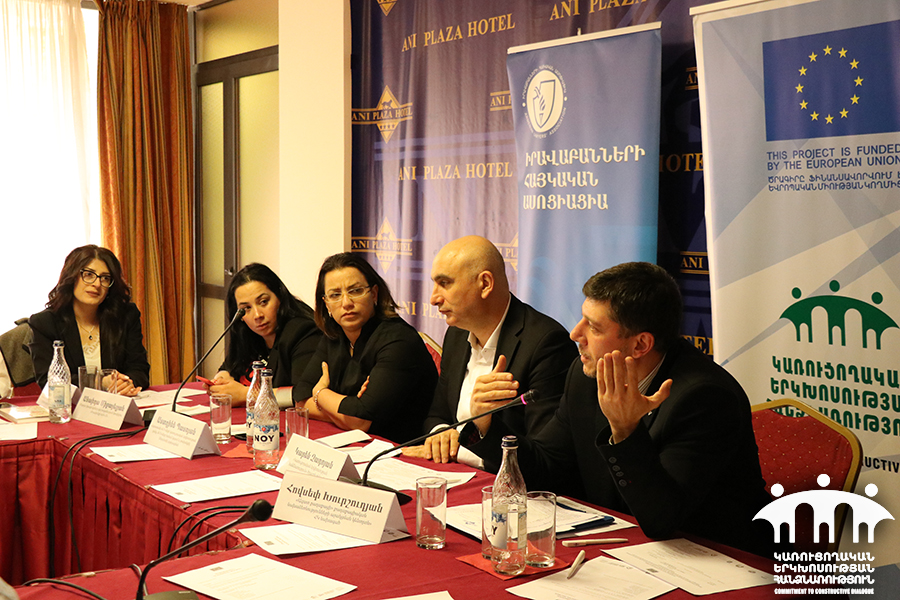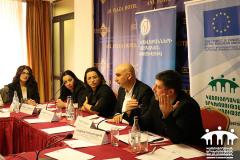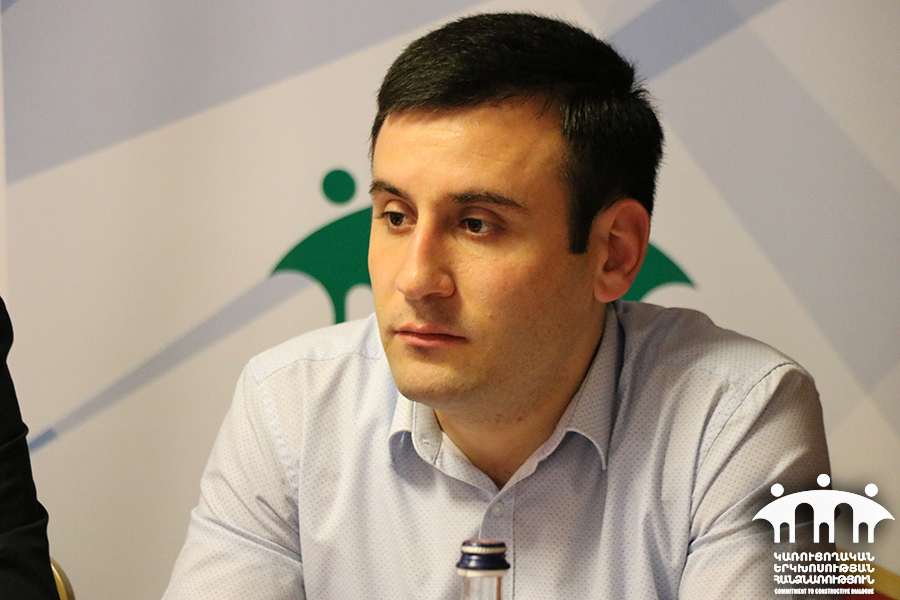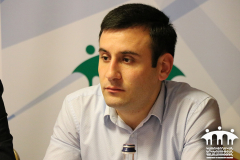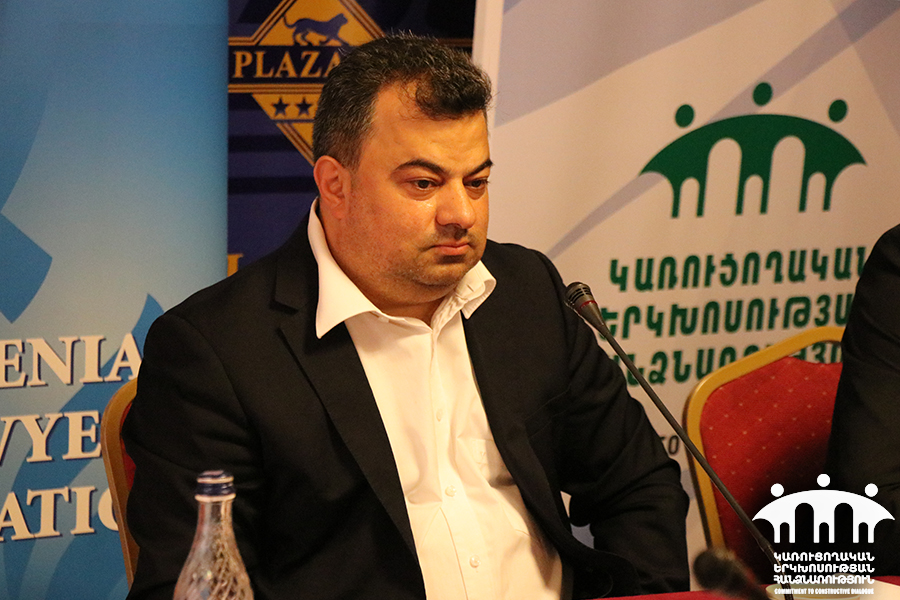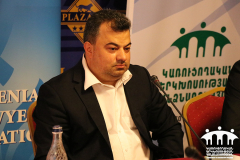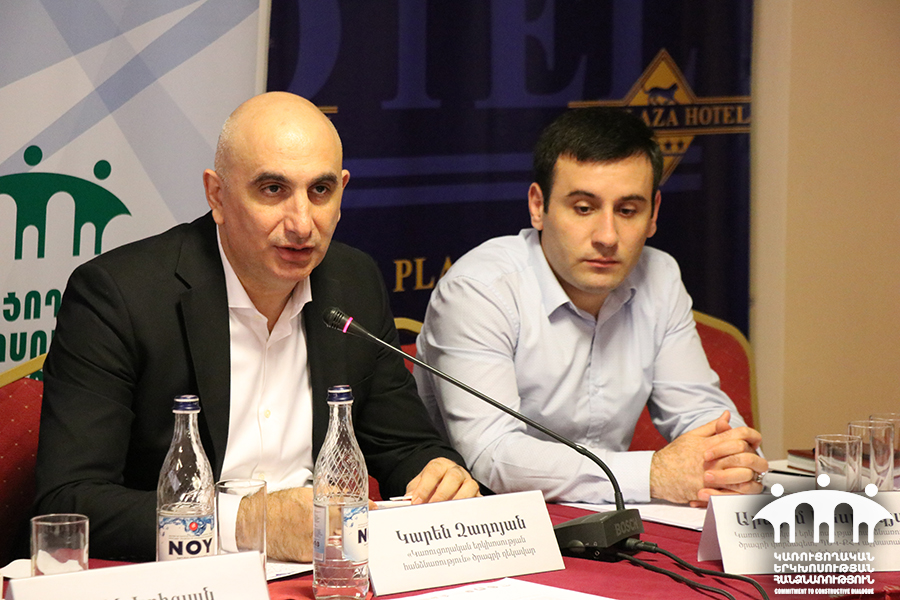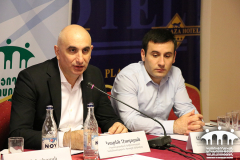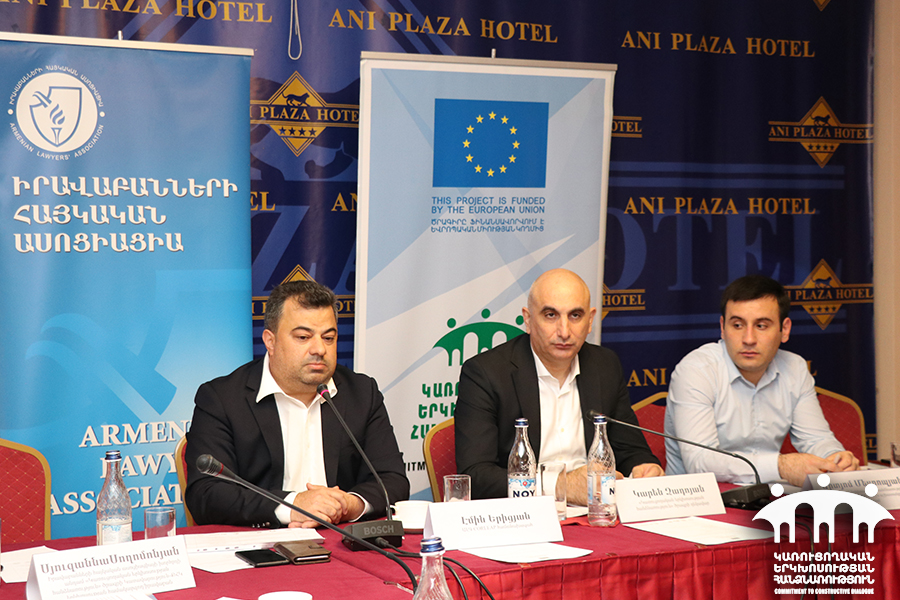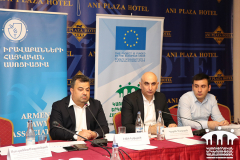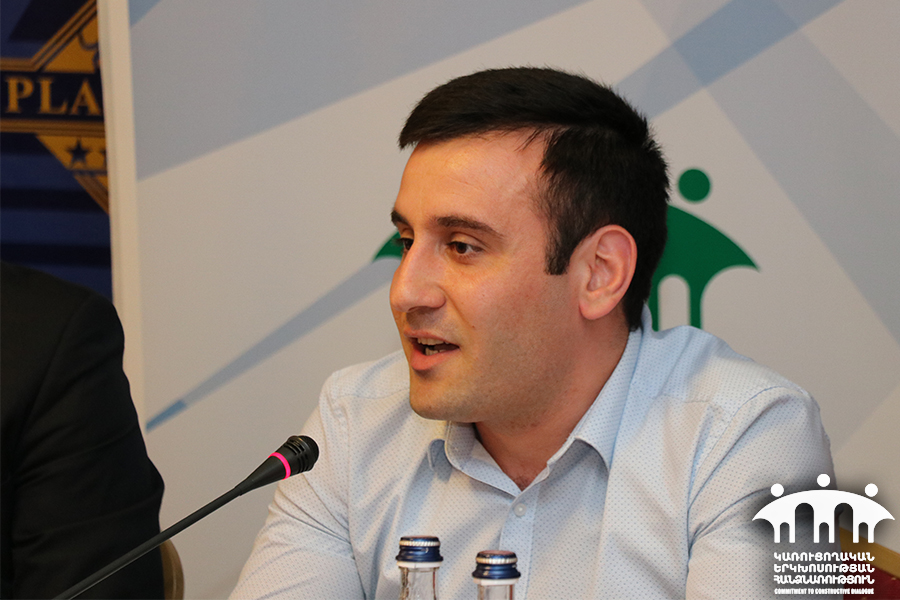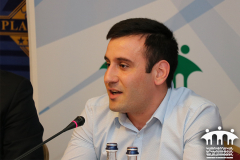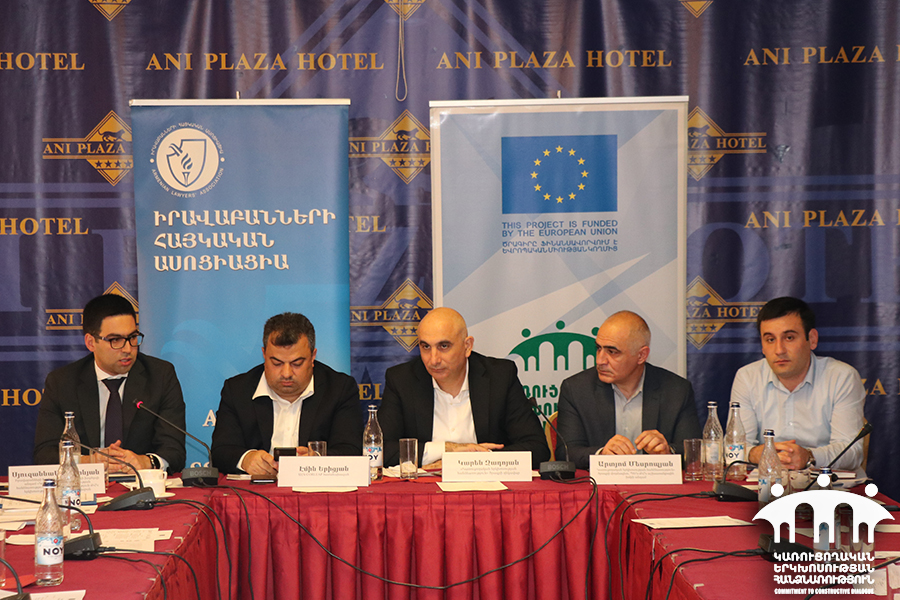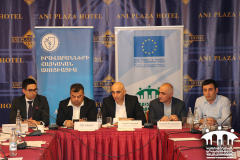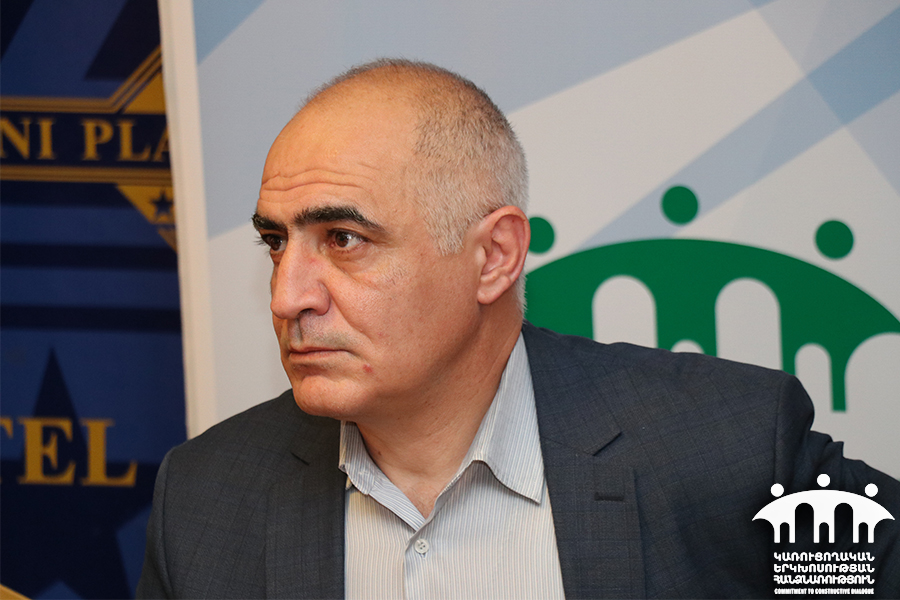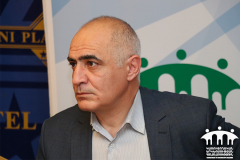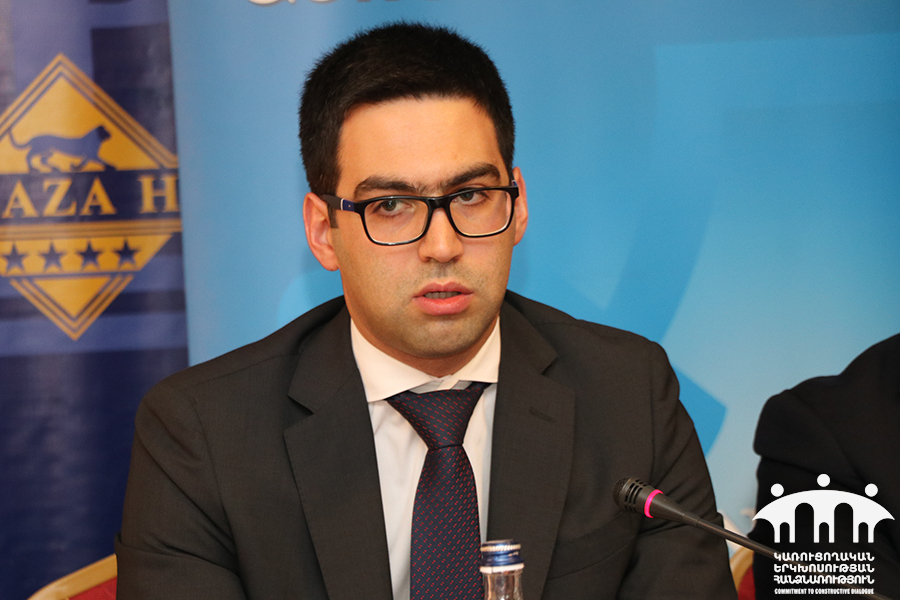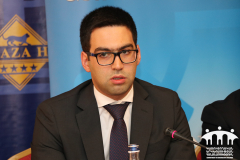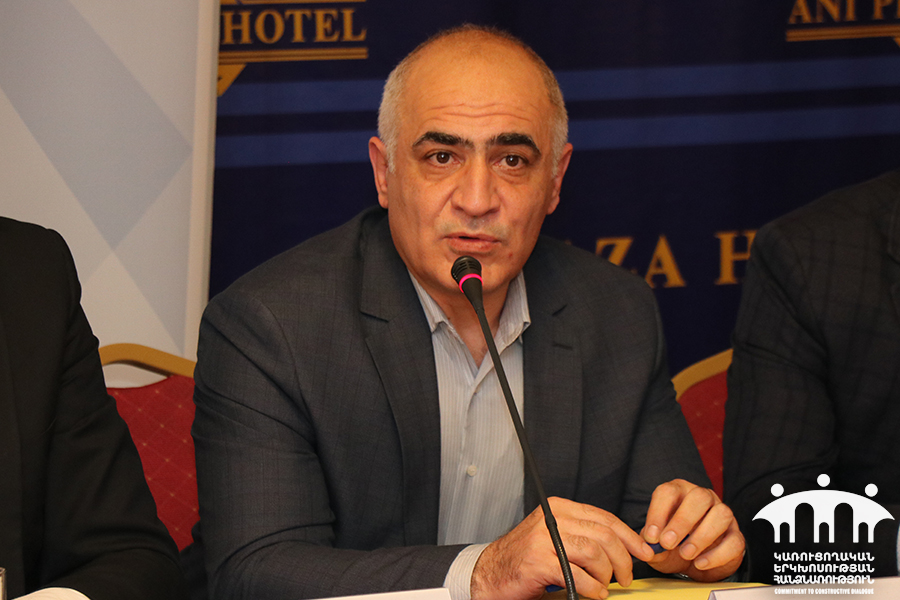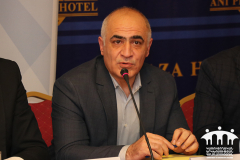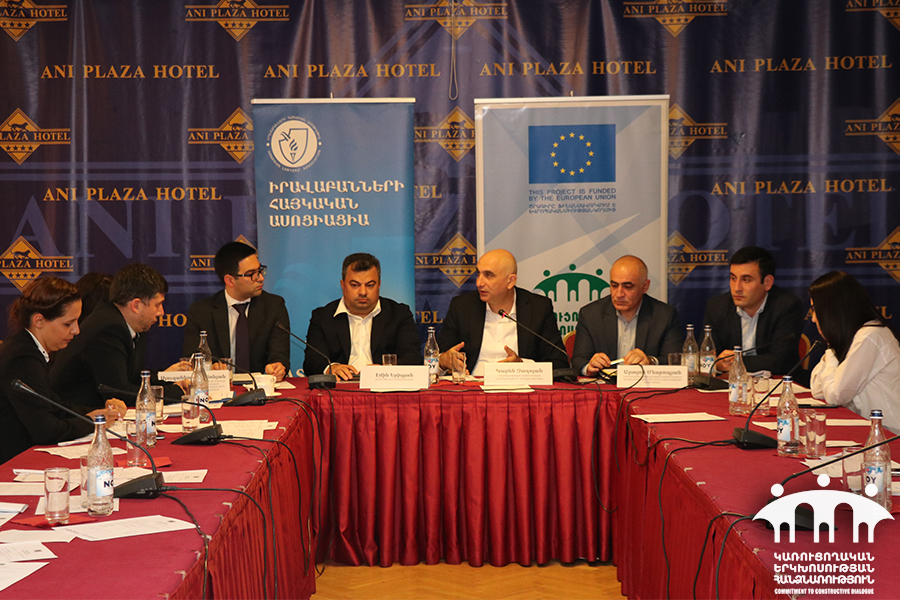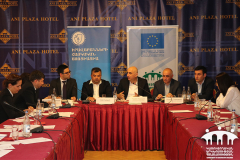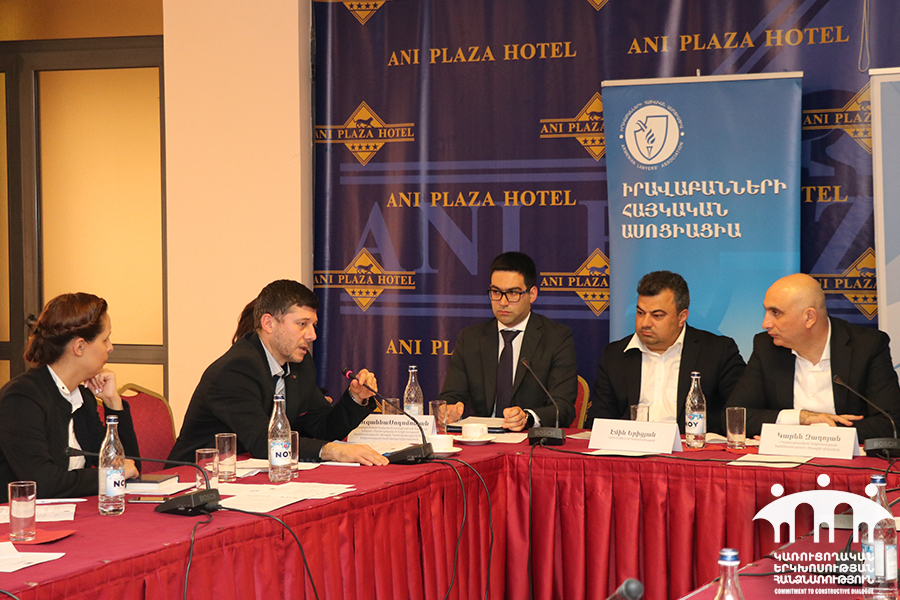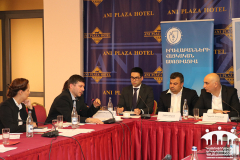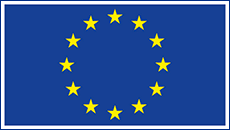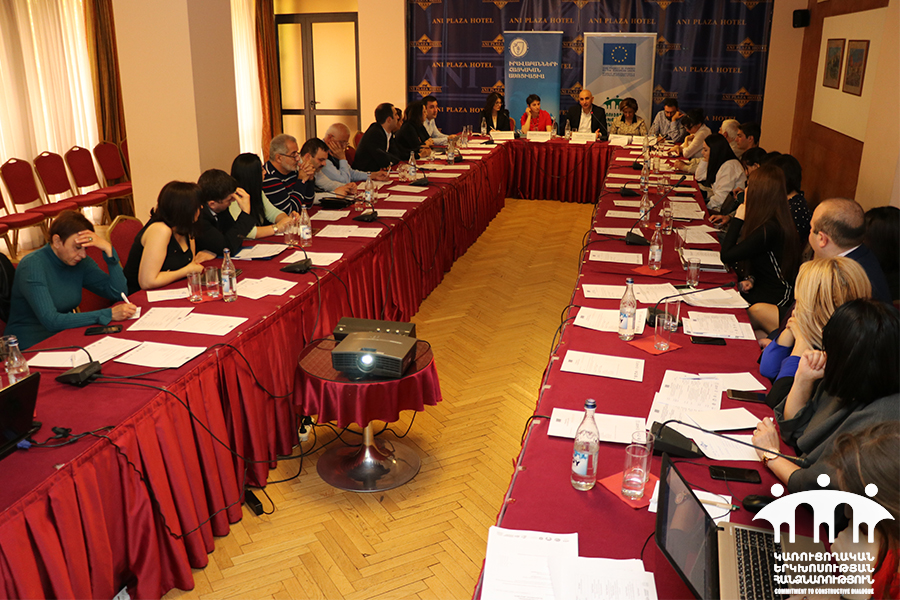
On 2 May, the public discussion on “Presentation of the Results of the International Civil Society Week 2019 and the Formation Process of the EU-Armenia CSO Platform, the Role of CSOs in Human Rights Protection and Public Policy Development” was held in the scope of the EU-funded “Commitment to Constructive Dialogue” project.
Mr. Karen Zadoyan, President of the Armenian Lawyers, Association, the “Commitment to Constructive Dialogue” Project Manager, welcomed the participants in the opening speech.
“We believe, that after the velvet revolution, dialogue between the civil society organizations and the government, should be more robust, constructive and effective. In this regard, we have helped more than 100 CSOs to develop and strengthen their knowledge and capacity in the areas of evidence-based public policies, conducting monitoring, as well as coalition/network building skills and establishing constructive and sustainable dialogue with the government.”
He noted that a number of agreements on cooperation had been reached with various ministries and active work is being carried out.
Ms Anna Avagyan, CIVICUS: World Alliance for Citizen Participation, Capacity Building Manager, presented the results of the International Civil Society Week 2019. She noted that Armenian NGOs do not show much active participation in the event, which is also a result of lack of awareness. “This event is organized by “CIVICUS” every 18 months and has already gained popularity. This year’s theme was “The Power of Togetherness”. We thought that the space around the civil society in the world is getting smaller and it is more difficult for CSOs to fulfil their mandate,” she said.
Mr. Sergey Tantoushyan, Director of AUA Extension program of the American University in Armenia presented the results of cooperation of the CCD Project, the American University, and CSOs. “We presented a programme that consisted of four courses, and 118 CSO representatives participated in it successfully,” he said.
Ms Gayane Vardanyan , head of “Wikimedia Armenia” Scientific and Educational NGO, also spoke about the participation in the conference and its results, as well as the interest towards Armenia. “Why were they interested in us? Taking into account the velvet revolution and the role of the whole society and CSOs, we played a special role and I was in the role of a “black sheep” during the whole discussion, because all the issues that were put on the table and were exacerbated by other countries, particularly by Asian and African countries, I hope they have not had enough room in Armenia,” she said and also presented the targets of the discussions at the forum.
Ms Syuzanna Soghomonyan, Board Member of the Armenian Lawyers’ Association, Government-CSO Dialogue Coordinator/Lawyer of the “Commitment to Constructive Dialogue” project said, “Such events always give me an opportunity to evaluate the state of the processes in Armenia and to draw parallels between them both in developing and developed countries. Armenia can, in some cases, be presented in some areas and with some skills as an example of best practice, and the development and sustainability of CSOs in Armenia has reached the level that we can present our experience not only to developing but also developed countries.”
Ms Astghine Pasoyan, “CSOs for Sustainable and Transparent Energy Development” Project Manager, spoke about the role of CSOs in public policy development and decision-making in the field. In her words, for example, when trying to support civil initiatives in the field of environmental protection, there was a lack of professional work, in which case fighting together for some agenda is unacceptable from the point of view of professional ethics. Astghine Pasoyan mentions that it is always necessary to have partnership relations with the government, as the consequences of not working with different officials based on personal interests are not in the interests of the country. “We have created a coalition of NGOs, 25 NGOs joined us, and from the very first meeting it became clear that we have a lot to do with them, it is a responsibility and we have to work with everyone so much that they would master the agenda issues of the sector to the extent that they are able to fight for them independently,” she said.
Ms Anaida Mikayelyan, representative of the “Power of Law” NGO, member of the Human Rights Protection Coalition, presented the work carried out in the scope of the “Human Rights: Monitoring and Publicity” project, related to the Threats to Human Rights Defenders in Armenia. “We recorded 19 cases in a year, from which we have targeted three profession that carry out human rights protection activities: they are journalists, lawyers or human rights protection organisations or individuals who are dealing with human rights protection,” she said.
Mr. Hovsep Khurshudyan, President of the “Free Citizen” Civic Initiatives Support Centre” NGO, presented the work done within the framework of project “For Overcoming Radicalization, Xenophobia and Hatred among the Youth of Armenia” implemented with the sub grant provided by the EU funded CCD project related to hatred and its manifestations in Armenia. He noted that today the hate speech is quite popular in social networks and there is no mechanism for its legal assessment. Hovsep Khurshudyan presented an example the Cassation Court’s case-law in 2013, which defines what should be viewed as insult: “The Court of Cassation stated that: disgracing is an expression which according to the assessment of the society members diminishes the merits of a person in society, subjects a person to ridicule and shame, may turn a person into an object of hatred or contempt, or confused a person or make other people avoid this person,” he said.
Mr. Emin Yeritsyan, EaP CORLEAP Co-Chairman, President of the Union of Communities of Armenia, presented the current state of creating the EU-Armenia CSO Platform and upcoming actions within the RA-EU Comprehensive and Enhanced Partnership Agreement. “The civil society still does not consider it important enough, does not comprehend and is not involved enough in these processes, and it’s time for civil society to demonstrate a stronger ambition. We have had considerable changes in Armenia and there is a great need for the role and importance of civil society as we want to have a truly democratic country both at national and local levels, we have to be active citizens. This is a challenge facing our civil society,” he said. Emin Yeritsyan added that within the framework of the CCD project 10 coalitions have created the “Constructive Dialogue Network of Armenian CSOs”, with more than 250 community organizations involved, and from this point of view it is important that this multipurpose network participates directly in the EU-Armenia CSO platform.
Mr. Artyom Mesropyan, “Commitment to Constructive Dialogue” Project Expert, SRC-CSO Working Group Member, presented the current state of the SRC-CSO working group and the forthcoming steps to improve the draft amendments to the RA Laws on Foundations and NGOs. “It is very important that the state-civil society relations are put on the legal plane in the right direction and the right approaches will be displayed in this issue and some legal processes will be re-interpreted,” he said.
Mr. Rustam Badasyan, Vice-President of the State Revenue Committee, mentioned that CSOs have already had a successful precedent in the workshop. The working discussion was held to elaborate draft amendments and additions to the RA Laws on Foundations and NGOs. “I suggest that we add another working session and take into account our views and opinions. It would be great if we have a definitive unified position and perhaps it will be one of the exceptional cases that the state and civil society are consciously moving to the changes together, with which it will be well-established,” Rustam Badasyan said.
Summing up the workshop, Karen Zadoyan, President of the Armenian Lawyers, Association, the “Commitment to Constructive Dialogue” Project Manager, noted that such an invulnerable and credible project should be developed, which will be acceptable for all parties.


